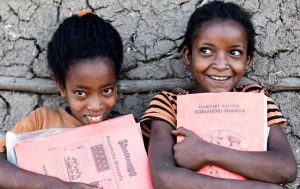Project to Advance Investor Action on Systemic Social Risks During Covid-19
Brookline, MA, United States, May 28, 2020 / TRAVELINDEX / Social and financial systems are increasingly interconnected. The ongoing and rapidly-changing social, financial, and economic fallout from the Covid-19 pandemic is a vivid, real-time example of this interconnection in action. The pandemic has exposed the systemic challenges already present for the vast majority of working people, and magnified the hurdles facing historically marginalized groups.
The Moving the Market (MtM) Initiative, a collaboration between Humanity United, UBS Optimus Foundation, and The Freedom Fund, has partnered with The Investment Integration Project (TIIP) to develop a roadmap that helps investors better understand and respond to the material risks to their investments – from business as usual to times of extreme crisis – that are caused by the deep interconnection between social and financial systems.
“Covid-19 has exposed how the financial sector has undervalued the importance of social impacts. As we move towards a new normal, capital markets must better factor in the risk of future massive systemic failures,” said Kilian Moote, Director for Humanity United. “Investors need to understand their role in ensuring that inevitable, future shocks to social systems are not as financially or economically catastrophic as Covid-19 has been.”
The project, titled “Understanding Systemic Social Risk: A Roadmap for Financial Industry Action,” will use Covid-19 as a frame of reference to explain the interconnection between social and financial systems, guide investors in integrating social considerations into their investment decision-making, and recommend how other industry stakeholders (e.g. policymakers and industry regulators) can encourage and support investors and help to increase the resiliency of capital markets.
The Moving the Market (MtM) Initiative and TIIP will co-host a webinar on June 11, 2020 at 11am ET to discuss the project’s objectives, research questions, and workplan with key stakeholders. It is the first in a series of webinars that MtM and TIIP will co-host as part of the project to keep industry stakeholders up to date on project activities and findings, answer questions, and to catalogue and consider their feedback at various stages of project completion.
Register for the webinar at no charge here.
“Partnering with the Moving the Market Initiative to create this guidance is one way that we can help to ensure that the financial industry learns from the fallout from Covid-19, and to ensure that inevitable future societal disruptions are less costly,” said Bill Burckart, President of TIIP and co-author of the forthcoming book 21st Century Investing: Redirecting Financial Strategies to Drive Systems Change (Berrett-Koehler, 2021). “TIIP has been at the forefront of making investors aware that systemic issues of all kinds, from climate change to income inequality and others, impact their bottom lines and that they can do something about it. The Covid-19 pandemic has been a wake-up call for many that ignoring these issues and failing to manage related risks has very real financial and economic consequences.”
“Understanding Systemic Social Risk” is part of Moving the Market, an initiative supported by Humanity United, UBS Optimus Foundation, and The Freedom Fund to encourage investors’ consideration of social issues across asset classes. Through a pooled fund, the initiative aims to “move the market” by sponsoring projects to support investor demand for sustainable investing and advance approaches to account for social impacts in investment decision-making. Grantee organizations are developing and piloting new strategies to advance investor engagement on modern slavery across a range of asset classes, with the aim of expanding the tools, metrics and approaches available to market actors.
Humanity United
Humanity United is a foundation dedicated to cultivating the conditions for enduring freedom and peace. We support and build efforts to transform the systems that contribute to human exploitation and violent conflict. HU was founded by The Omidyar Group, a diverse collection of independent organizations and initiatives that pursue different ways to improve the lives of people and societies.
UBS Optimus Foundation
UBS Optimus Foundation connects clients with inspiring entrepreneurs, new technologies and proven models that are making a measurable, long-term difference to the most serious and enduring social and environmental problems. The only client-facing foundation linked to a global wealth manager, UBS Optimus Foundation has a long track record and is recognised globally as a philanthropic thought leader. It takes an evidence-based approach and focuses on programs that have the potential to be transformative, scalable and sustainable. This gives clients the reassurance that they are funding innovative projects that have a stronger chance of achieving systemic change. UBS covers 100% of the Foundation’s costs and also makes matching contributions, ensuring that client donations will go even further.
The Freedom Fund
The Freedom Fund is a leader in the global movement to end modern slavery. We identify and invest in the most effective frontline efforts to eradicate modern slavery in the countries and sectors where it is most prevalent. Partnering with visionary investors, governments, anti-slavery organisations and those at risk of exploitation, we tackle the systems that allow slavery to persist.
The Investment Integration Project (TIIP)
TIIP’s mission is to help investors understand how healthy environmental, social, and financial systems can benefit their portfolios. TIIP provides thought leadership, research, and consulting services that support investors’ pursuit of system-level investing, an advanced sustainable investing approach that focuses on managing systemic risks and investing in solutions to systemic problems.
